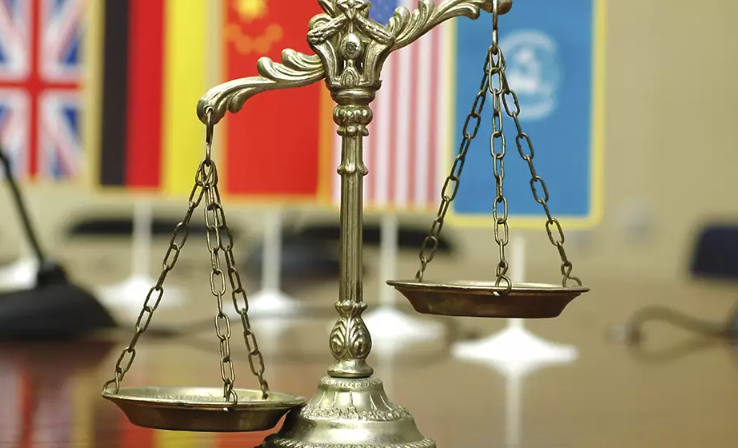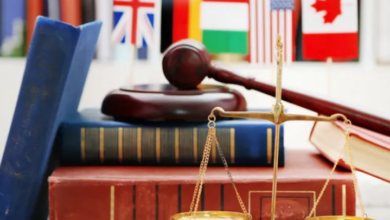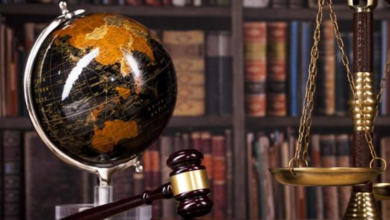Center for International Environmental Law (CIEL)

The Center for International Environmental Law (CIEL) stands at the forefront of global efforts to protect our planet. As environmental challenges escalate, this organization emerges as a key player in advocating for justice and sustainable practices. CIEL combines law, policy, and advocacy to address pressing issues like climate change, biodiversity loss, and pollution. With its unique approach that intertwines legal frameworks with grassroots activism, it inspires hope and mobilizes action across borders. Delving into the work of CIEL reveals not just a commitment to international environmental law but also a vision for a healthier planet where people can thrive alongside nature.
History and Mission of CIEL
The Center for International Environmental Law (CIEL) was founded in 1989. Its creation stemmed from a growing awareness of environmental issues on a global scale. The founders recognized the need for legal tools to address these challenges effectively.
From the outset, CIEL dedicated itself to promoting sustainable development through international law. Its mission emphasizes protecting the environment while ensuring human rights and fostering justice.
Over the years, CIEL has become an influential advocate in various forums. They focus on shaping policies that prioritize ecological integrity and social equity worldwide. By engaging with stakeholders across sectors, they strive to create a future where both people and nature thrive together.
Through continuous research and advocacy efforts, CIEL remains committed to advancing environmental protections on an international level. Their work reflects a vision of harmony between humanity and the planet’s ecosystems.
Key Accomplishments of CIEL
The Center for International Environmental Law (CIEL) has made remarkable strides since its inception. One major accomplishment is its advocacy for the recognition of environmental rights as human rights, influencing international treaties and national laws.
CIEL played a pivotal role in shaping policies surrounding climate change. Their work contributed to significant agreements that bind nations to reduce greenhouse gas emissions.
They have also been instrumental in advancing legal frameworks for biodiversity protection. Through impactful litigation, CIEL has held corporations accountable for environmental degradation.
Their efforts extend beyond legal action; they educate and empower communities worldwide about their environmental rights. By providing resources and training, CIEL fosters grassroots movements dedicated to sustainability.
Additionally, their publications have become essential references in the field of international environmental law. These documents guide lawmakers, activists, and scholars alike toward effective policy-making solutions.
Areas of Focus and Global Impact
The Center for International Environmental Law (CIEL) zeroes in on critical areas impacting our planet. They tackle issues like climate change, biodiversity conservation, and access to environmental justice.
Through research and advocacy, CIEL influences policy at both national and international levels. Their work shapes treaties that protect the environment while promoting human rights.
By focusing on sustainable development, they ensure that economic growth does not come at the expense of ecological health. CIEL’s initiatives highlight the interconnectedness of social equity and environmental protection.
Their global impact resonates through educational programs aimed at empowering local communities. By engaging with grassroots movements, CIEL amplifies voices often overlooked in environmental discussions.
By challenging harmful practices and advocating for systemic changes, CIEL strives to foster a healthier planet for future generations. Their efforts inspire collaboration across borders to address pressing environmental challenges effectively.
Programs and Initiatives at CIEL
The Center for International Environmental Law (CIEL) offers a range of innovative programs aimed at tackling pressing environmental issues. Their work spans various areas, including climate change, biodiversity conservation, and human rights.
One key initiative focuses on promoting legal frameworks that hold corporations accountable for environmental damage. This program empowers communities to assert their rights when faced with corporate negligence.
Another important aspect of CIEL’s work is its efforts in advocating for sustainable development practices globally. They provide valuable resources and expertise to help governments implement effective policies that balance economic growth with environmental protection.
Additionally, CIEL engages in capacity-building initiatives designed to educate stakeholders about international environmental law. These educational tools equip individuals and organizations with the knowledge necessary to advocate effectively for a healthier planet.
Through these diverse programs, CIEL plays an instrumental role in shaping a sustainable future while fostering collaborative solutions worldwide.
Collaborations and Partnerships
The Center for International Environmental Law (CIEL) thrives on building strong collaborations. Partnerships with various stakeholders amplify their impact in the realm of environmental law.
Working alongside governments, non-governmental organizations, and academic institutions helps CIEL to tackle pressing global challenges. These alliances create opportunities for knowledge-sharing and innovative solutions.
By collaborating with grassroots movements, CIEL ensures that marginalized voices are heard in policy discussions. This inclusive approach enriches their advocacy efforts and broadens the scope of environmental protection.
Furthermore, partnerships extend beyond borders. CIEL engages with international entities to strengthen legal frameworks worldwide. Such cooperative endeavors lead to more effective implementation of environmental laws across different jurisdictions.
Through these strategic alliances, CIEL not only enhances its mission but also fosters a collective responsibility toward sustainable development on a global scale. Each collaboration is a step forward in creating a healthier planet for future generations.
Future Goals and Vision for CIEL
The future of the Center for International Environmental Law (CIEL) rests on an ambitious vision. As global challenges mount, CIEL aims to strengthen its advocacy for environmental justice and sustainability.
One key goal is to expand legal frameworks that prioritize ecological integrity. This involves working with governments to integrate environmental rights into legislation worldwide.
Another focus will be enhancing partnerships with local communities. By empowering grassroots movements, CIEL seeks to amplify voices often overlooked in policy discussions.
Innovation will also play a crucial role in their strategy. Embracing new technologies can help address issues like climate change more effectively.
Increasing public awareness remains paramount. Educating diverse audiences about international environmental law fuels activism and drives meaningful change across borders.
How to Get Involved with CIEL
Getting involved with the Center for International Environmental Law (CIEL) is an enriching opportunity for anyone passionate about environmental justice.
You can start by visiting their official website to explore various volunteer opportunities. They often seek individuals who bring diverse skills and backgrounds to support their mission.
Engaging with CIEL on social media platforms is another way to stay updated on initiatives and events. Follow them, share posts, and join discussions around international environmental law topics.
Consider becoming a member or donor. Your contributions help fund critical programs that promote sustainable practices worldwide.
Participating in webinars and workshops hosted by CIEL not only expands your knowledge but also connects you with like-minded individuals committed to making a difference.
Advocating for policies aligned with CIEL’s goals amplifies collective efforts toward global sustainability. Every action counts towards impacting our planet positively.
Success Stories from CIEL’s Work
The Center for International Environmental Law has numerous success stories that highlight its impactful work. One notable achievement includes the role CIEL played in advancing legal frameworks for climate justice. Their advocacy helped secure pivotal agreements at international conferences.
Another significant success was their involvement in protecting biodiversity. By collaborating with local communities and indigenous groups, CIEL facilitated critical policy changes that prioritize conservation efforts over industrial exploitation.
CIEL’s commitment to fighting environmental racism has also yielded impressive results. They have successfully lobbied for stronger regulations against pollution affecting marginalized communities, ensuring a healthier environment for all.
These victories demonstrate how strategic partnerships and dedicated advocacy can lead to meaningful change on a global scale. Each story reflects a commitment to sustainability and fairness in environmental governance, showcasing the essential role of law in driving progress.
Conclusion
The Center for International Environmental Law plays a crucial role in advocating for environmental justice and sustainable development across the globe. With its rich history and clear mission, CIEL has made significant strides in addressing pressing environmental challenges.
CIEL’s future goals are ambitious yet achievable. By continuing to educate and engage communities while promoting robust policies, they aim to foster a healthier planet for generations to come.



